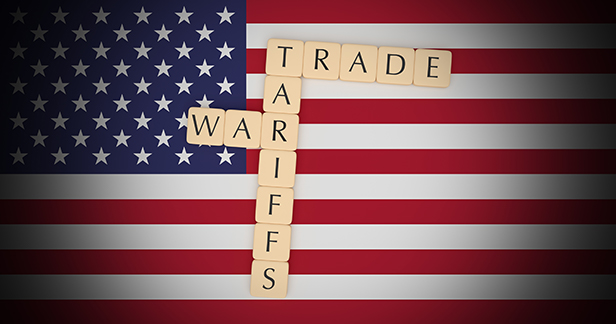December 10, 2019
New Tariff Deadline Could Be Delayed
The U.S. currently plans to impose more tariffs on China on Sunday, but the Trump administration could delay the move.
The next round of tariffs on Chinese imports could be temporarily put on ice – a potential positive for the promotional products industry.
The Wall Street Journal reported this week that negotiators for the U.S. and China are working to prevent the planned tariffs of 15% on $165 billion in Chinese goods from taking effect as scheduled on Sunday, Dec. 15, while the sides continue to discuss a possible “Phase One” trade deal.

“In recent days, officials in both Beijing and Washington have signaled that Sunday is not the final date for reaching a so-called phase-one deal – even though that is the date President Trump has set for tariffs to increase on $165 billion of Chinese goods,” the Journal reported. “That date could be extended, as has happened several times when the two sides thought they were on the verge of a deal. Those prior deals, though, never held and tariffs continued to mount.”
Larry Kudlow, economic advisor to the White House, downplayed the prospects of a tariff delay. He said nothing had been decided, and the tariffs were still a potential play for Sunday.
“The reality is those tariffs are still on the table, the Dec. 15 tariffs, and the president has indicated if the short strokes remaining in negotiations do not pan out to his liking that those tariffs could go back into place,” Kudlow said at a Wall Street Journal conference on Tuesday. “So, they could not, but they also could. There is no definitive decision on that yet.”
Last week, Kudlow said there are “no arbitrary deadlines” for reaching a Phase One deal. The under-work agreement has been characterized as the initial component of what we be a larger, comprehensive trade deal between the U.S. and China – the world’s two biggest national economies.
While Trump called the deal essentially done in October, negotiators have remained at odds on key issues. Those include a U.S. insistence that China commit to billions of dollars of purchases of American agricultural products, as well as Beijing’s adamance that at least some U.S. tariffs that are currently in place on about $360 billion in Chinese imports be removed. The Journal reported that other major issues in the trade war – including include Chinese subsidies to domestic companies and pressure on U.S. firms to hand over technology – are “largely being pushed back for future negotiation.”
The U.S./China trade conflict has caused issues for the American promotional products industry that include increased product prices, destabilized annual pricing, challenges in producing catalogs and an ever-more-uncertain selling environment that some fear could cause end-buyers to reduce their spending on ad specialties.
Writing instruments and a far-reaching range of apparel products – including T-shirts, the single-largest product category in terms of sales in the promo industry – are among the items affected by tariffs. Other affected promo categories include bags, stationery, select drinkware, headwear, tech and accessory items. More widespread price increases could be implemented in the months ahead if tariffs remain in place – and if more are imposed – as suppliers replenish stocks with products subject to the duties.
